Rules for placing things
Here are some general guidelines for organizing cabinet space:
- Before placing wardrobe items in the bedroom, it is worth revising and getting rid of unnecessary items. You don't have to throw away your old clothes: they can be taken to collection points, sold or turned into decorative elements.
- The most sought-after casual wear is usually at eye level. It is best to sort it by color so that the search does not take much time.
- It is recommended to place seasonal items on the mezzanine: in boxes, baskets and suitcases, they take up less space and look neater. Another practical option for saving space is vacuum bags.
- When ordering a new wardrobe or updating its "stuffing", it is worth taking into account the inconveniences of the old design and correcting these shortcomings. For example, if there was not enough space for dresses - add different roof rails, or in case of inefficient use of space - make additional shelves.
Internal filling options
The modern market offers many solutions for convenient storage inside the cabinet. When choosing a filling, one should take into account the quality of the materials from which the body and movable mechanisms are made, as well as the ease of opening and closing all doors and drawers.
Filling Ideas for Built-in Wardrobes
It is a design with sliding sliding doors that can fit anywhere in the bedroom. The advantage of this product is its height - from floor to ceiling.
The standard depth of the built-in wardrobe is 60 cm. The maximum door width is 120 cm, the optimal one is 60-80 cm. As a rule, the number of internal wardrobe sections corresponds to the number of its doors. A structure covering the entire area from wall to wall can have up to 4 sections.
The largest compartments are occupied by clothes hanging on rods (crossbars). If the bedroom is supposed to store coats and jackets, it is best to set aside a separate sector for them. The same goes for shoes; the lower part of the cabinet is allocated for it. The shelves are used for knitwear, bedding, and boxes or baskets where towels can be stored.
Due to the peculiarities of the doors in the closet, "dead zones" appear, which are always closed: if the drawer is placed in it, it simply will not slide out.
In the photo there is a sliding wardrobe with transparent facades and laconic filling. A special feature of the right section is two hanger bars: an upper and a lower one. The design is equipped with built-in lighting.
Corner wardrobe
This model for spacious rooms is more capacious than its rectangular "brother", but has one drawback - the corner space, which is difficult to use. This problem is solved by placing the vertical boom support.
Most experts in organizing space advise to arrange wardrobe items associatively: assign the upper part to hats and seasonal items, the middle part to everyday outfits and accessories, and the lower part to trousers and shoes.
Filling is very convenient with modern full-extension drawers - they slide out to the end and make it easy to find what you need.
In the photo there is a shallow corner wardrobe with lower and upper rods, as well as pull-out drawers for small things.
Examples for a two-door wardrobe
This is a popular design that will easily fit into a small bedroom. It is divided into two main niches: the first is reserved for linen and knitwear, and the second is for wardrobe items that are hung on a hanger. Such products are distinguished by a variety of designs: you can buy doors with a pattern, mirror, glass, or choose doors to match the color of the walls. The cabinet with translucent facades looks interesting, which makes the structure light and makes it easier to find what you need.
In addition to the standard set of rails, shelves and drawers, manufacturers offer more ergonomic filling for the wardrobe in the bedroom: pull-out plastic containers, carousels, and pantographs (lowering rods). In addition, there are special roll-out hangers for trousers, scarves and ties that allow you to easily separate wardrobe items from each other.
In the photo is a sliding wardrobe with glossy facades and thoughtful internal filling: a mezzanine and a bar. The space below is occupied by functional drawers.
For sliding wardrobes with three doors
Such large-sized items take up a significant area, but they have more storage space. The filling of the three-door wardrobe is diverse: the hanger bars can occupy all three compartments, interspersed with shelves and drawers, or be located in the central module. The rest of the sections can be reserved for bulky items (bags, cleaning accessories) and knitwear.
If it is not possible to install a dressing table in the bedroom, it is recommended to equip the wardrobe with a special section for personal belongings. Acting as a pantry, it should also include convenient sections for bags, shoes and other belongings.
In the photo there is a bedroom with an interesting filling of the wardrobe: a compact TV is built in the central part of the product.
Radius cabinet ideas
The specificity of this model is its rounded shape. The body with curved compartment doors is installed in a corner. Such an unusual product resembles a compact dressing room.
When choosing a wardrobe, you can order any number of drawers and rails, calculate the appropriate depth and height. The base can be shelves of various sizes or support rods.
The photo shows a stylish room in purple tones. The radial wardrobe is in perfect harmony with the furniture and bedroom interior.
Main sections
And now let's talk about the interior filling of wardrobes in the bedroom in more detail and share the advice of experts.
Shelves and drawers
Often, sliding wardrobes are deep enough, which at first glance seems inconvenient. In fact, organizing the internal content is quite simple: in the second row you can store wardrobe items that will not come in handy soon, and in the first - only those in demand at the moment.
Each type of clothing and accessories should have a separate place. Outdoor outfits are kept separate from those you use at home.
It is very convenient to use inexpensive plastic containers - they are strong, therefore they are stacked on top of each other, and their contents are visible through the transparent walls, which simplifies searches. In addition, boxes and crates with lids help keep the contents dust-free.
In the photo there is an overall wardrobe in the bedroom. The original internal filling is represented by separate shelves and mesh drawers.
Clothes module
The compartment for clothes, as a rule, occupies the main area of the wardrobe. Its depth should be at least 60 cm, otherwise the hangers will have to be hung not on the bar, but one after the other on special metal rails, which is not always convenient.
Each wardrobe item has its own hanger.Holding clothes on top of each other, it is easy to forget about your favorite blouse or shirt - it simply will not be visible. The exception is kits that are always worn together.
Ordering special roll-out trousers makes sense if the apartment owners have a lot of trousers: otherwise, it is better to install an additional bar at the bottom, and place the trousers on the hangers.
In the photo, a wardrobe equipped with barbells for dresses and a trouser
Shoe compartment
The lower part of the wardrobe is reserved for shoes. For convenience, ordinary shelves up to 30 cm high, lattices or metal / plastic shoe boxes are used, on which boots or shoes are put on. If they are stored in boxes, it makes sense to sign them or stick a photo of each pair: then you don't have to remove the covers in search of the right shoes.
Storage area for bulky items
If the house does not have a pantry where the vacuum cleaner, suitcases and bags are removed, a special section can be added to the wardrobe for their compact arrangement. It can be a narrow niche or a long horizontal shelf. A practical option for filling a wardrobe will be a compartment for an ironing board or a laundry basket, and movable mechanisms will simplify their use.
Storage space for small items
There are rarely special sections for jewelry or ties in standard wardrobes, but they can be purchased separately. Pull-out drawers with rigid dividers are expensive, but replacing them with mesh fabric organizers is very easy. With their help, individual compartments for T-shirts, socks, gloves and other small items are created.
Zoning examples
If one person lives in the bedroom, the filling of the wardrobe should meet his wishes, the number of items and the budget. It is convenient when there is a separate "thematic" department behind each door. A married couple can follow the same principles, but one more item is added - zoning. An excellent solution is to allocate each one a module. In a three-door wardrobe, one of the compartments can be set aside for general bedding, pillows, bags.
The photo shows one of the options for the insides of the wardrobe in the bedroom for two.
A wardrobe module for a woman assumes a compartment with a bar for clothes, a shelf for knitwear, a compartment for underwear and socks. For a man, in addition to the above, you can provide a trouser and a hanger to arrange ties.
Photo gallery
A well-thought-out storage system in the bedroom and a competent organization of the internal space in the wardrobe will not only ensure order in the room and save your personal wardrobe from dust, but also save time.

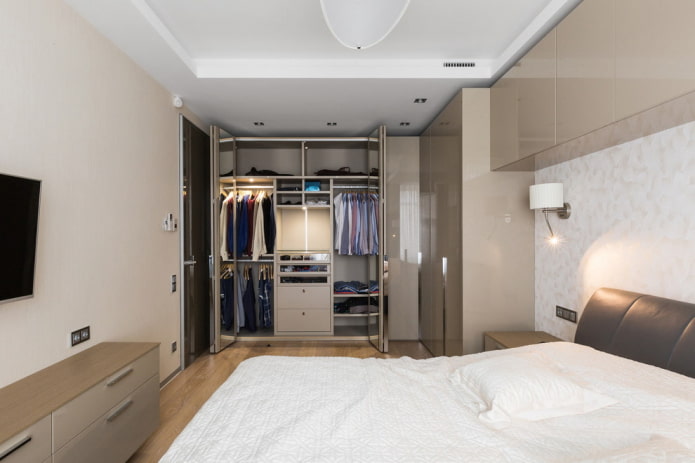
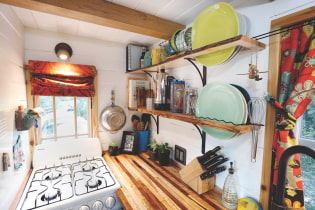 10 practical tips for arranging a small kitchen in the country
10 practical tips for arranging a small kitchen in the country
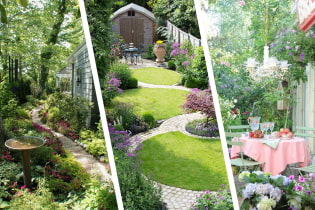 12 simple ideas for a small garden that will make it visually spacious
12 simple ideas for a small garden that will make it visually spacious
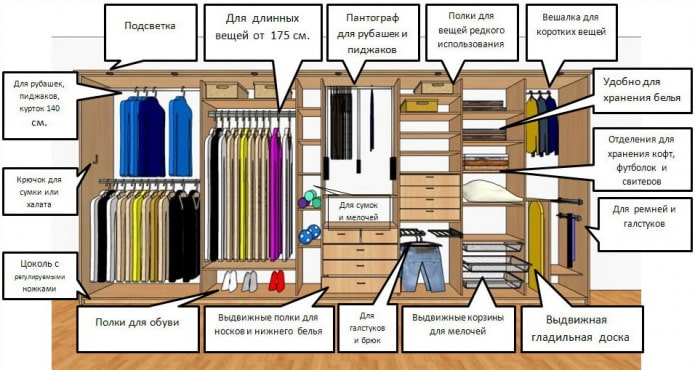
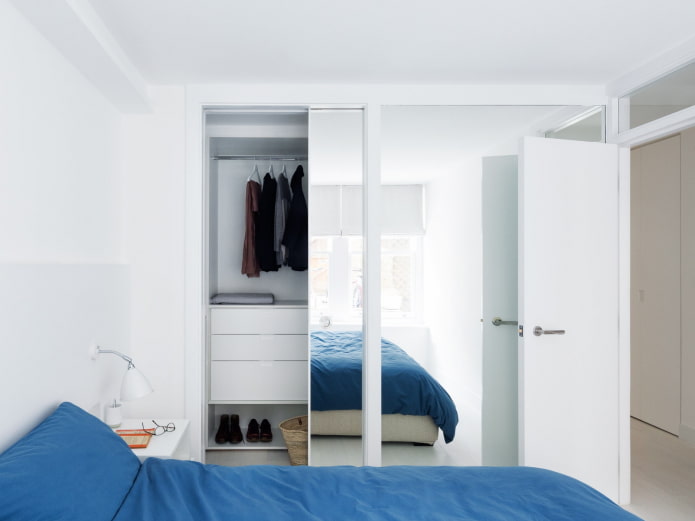
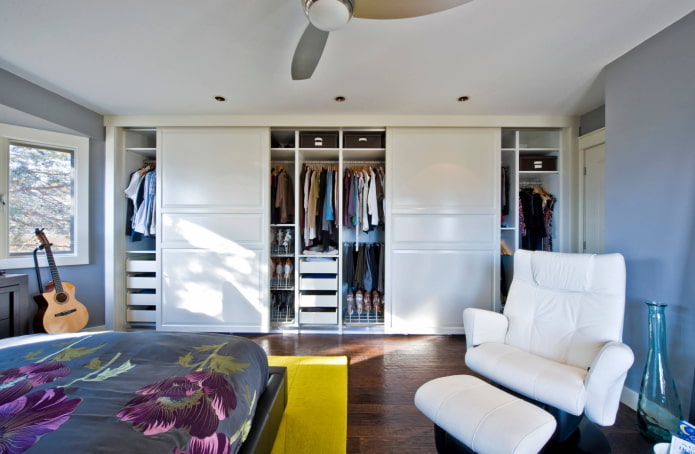
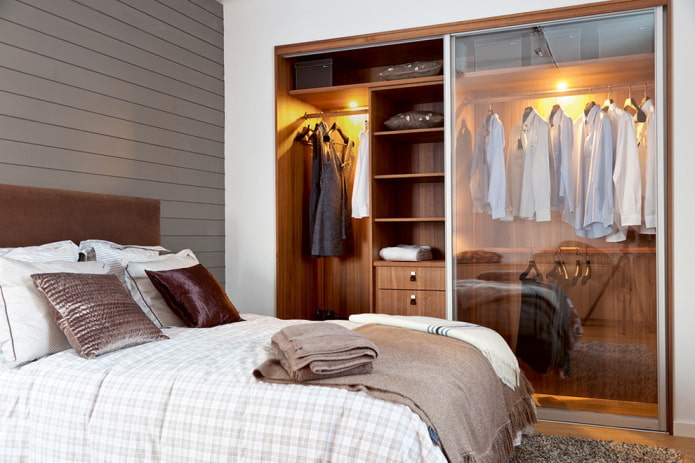
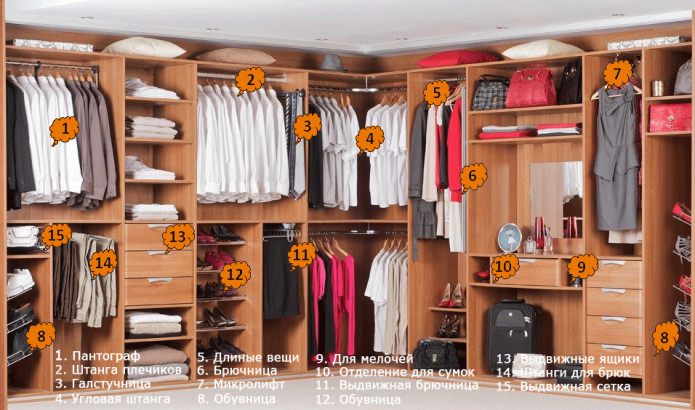
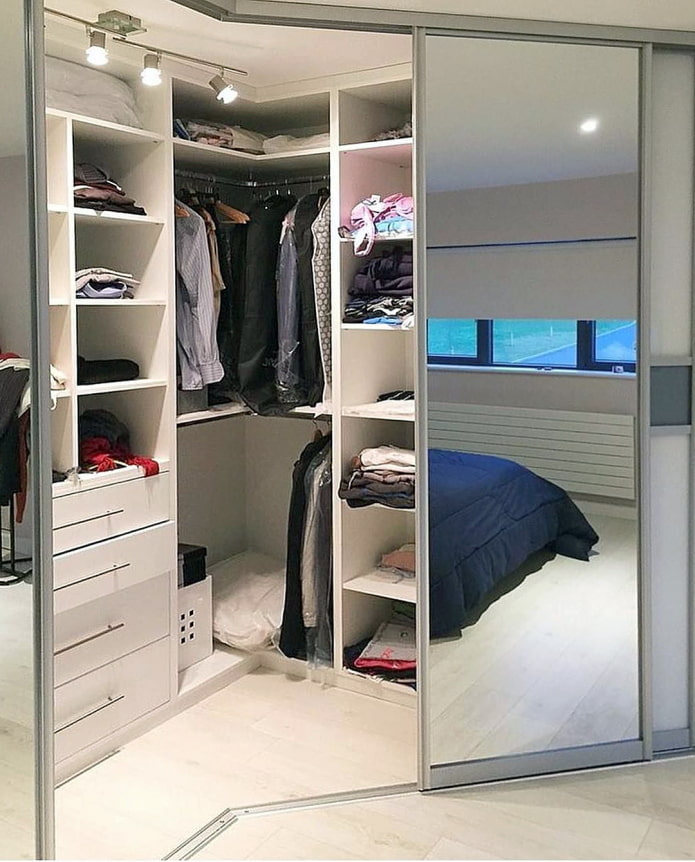
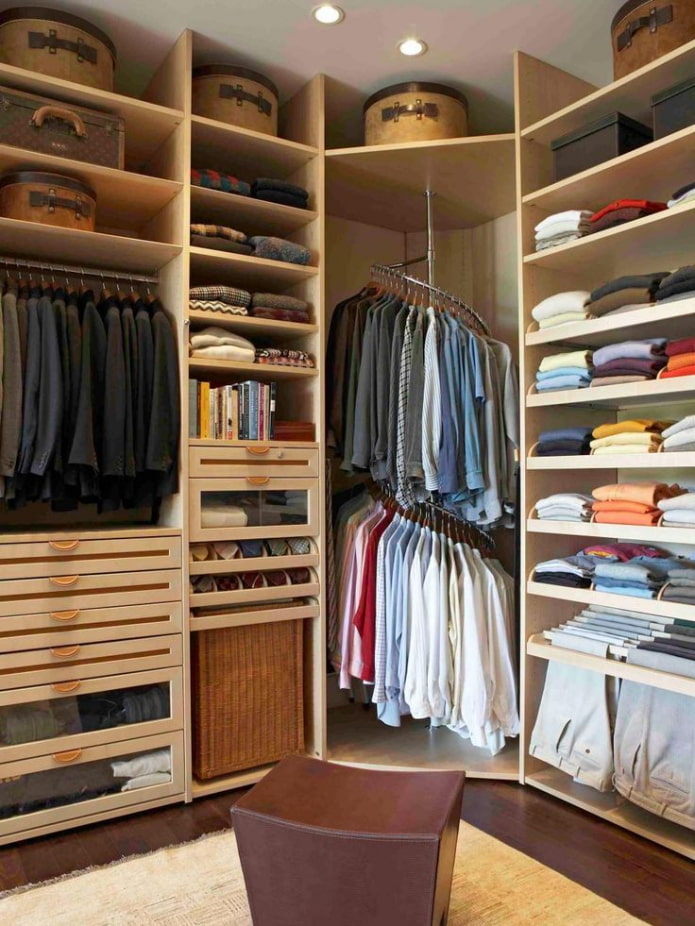
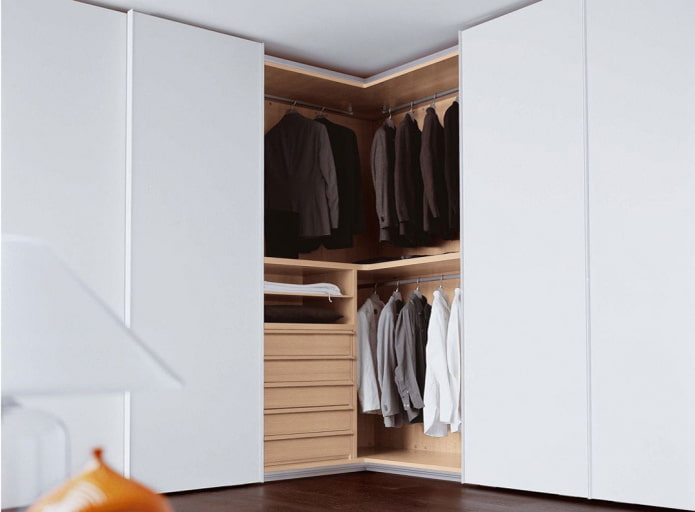
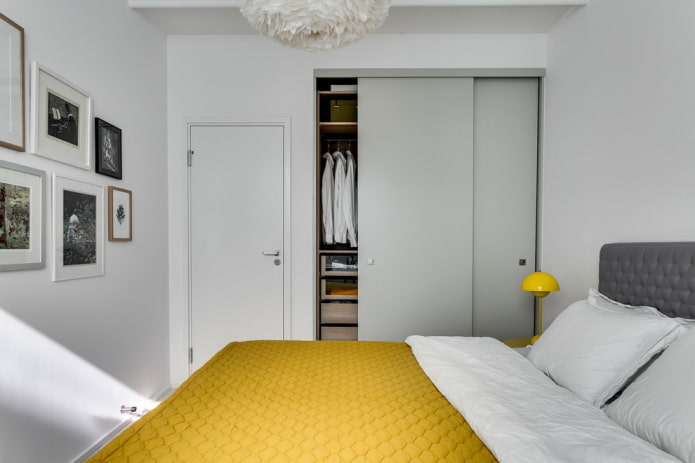
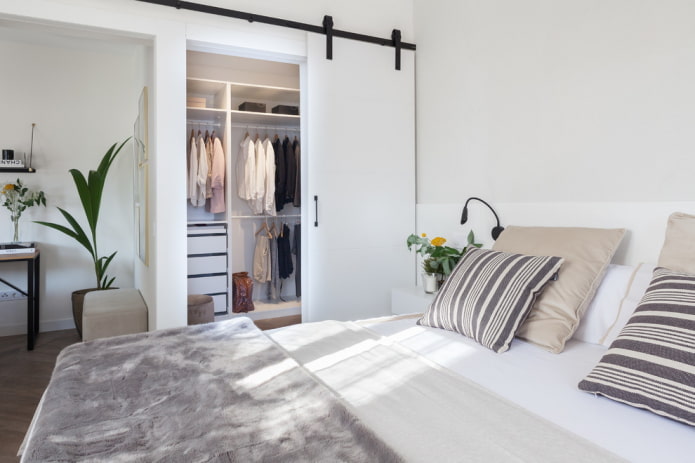
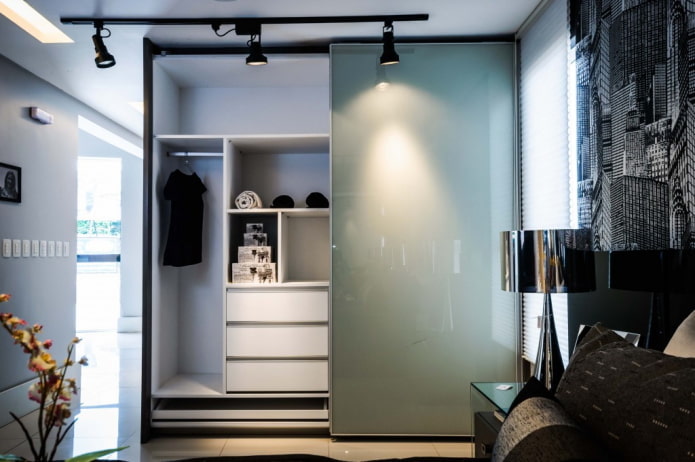
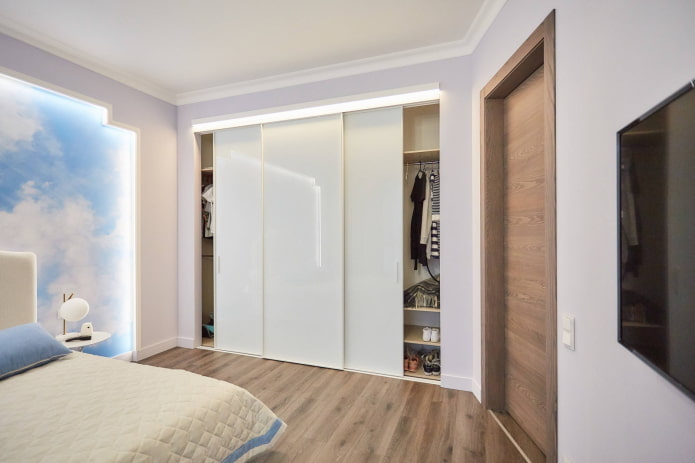
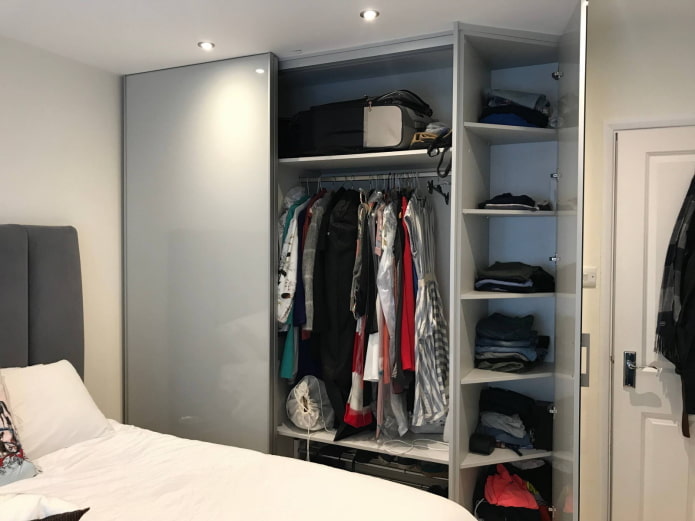
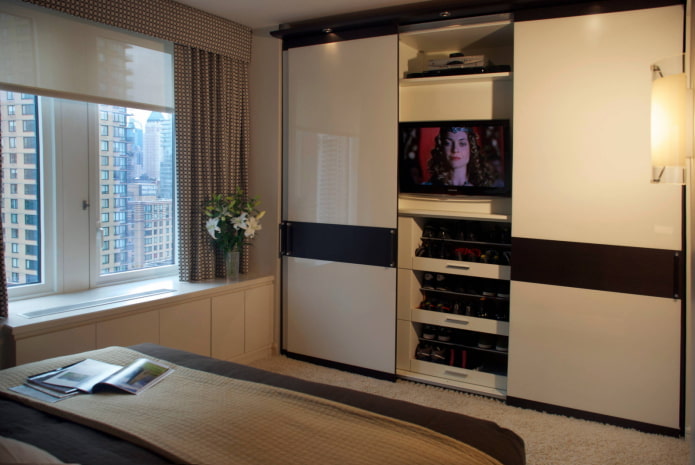
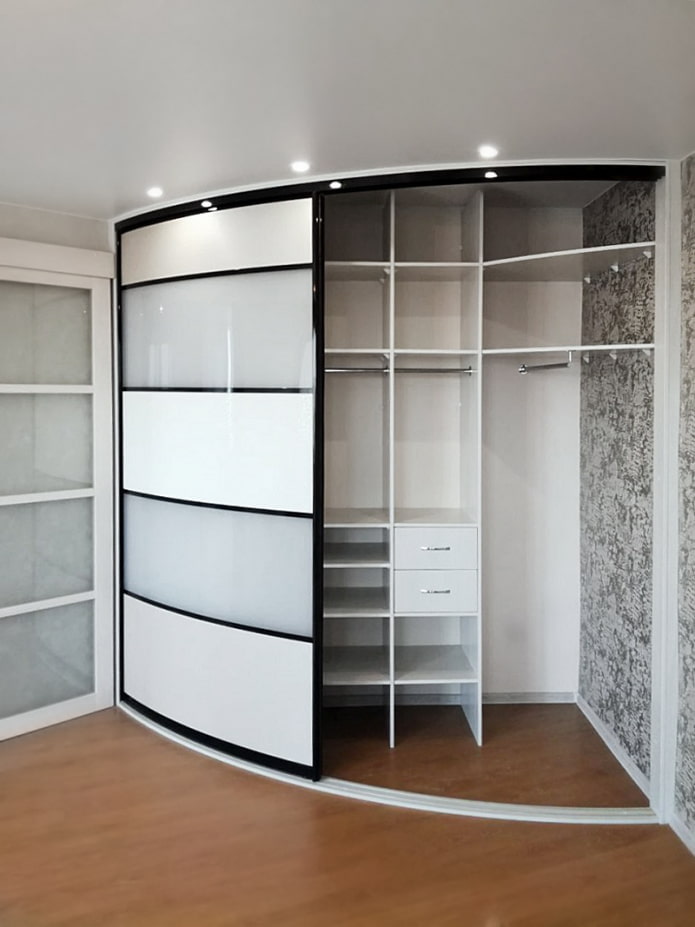
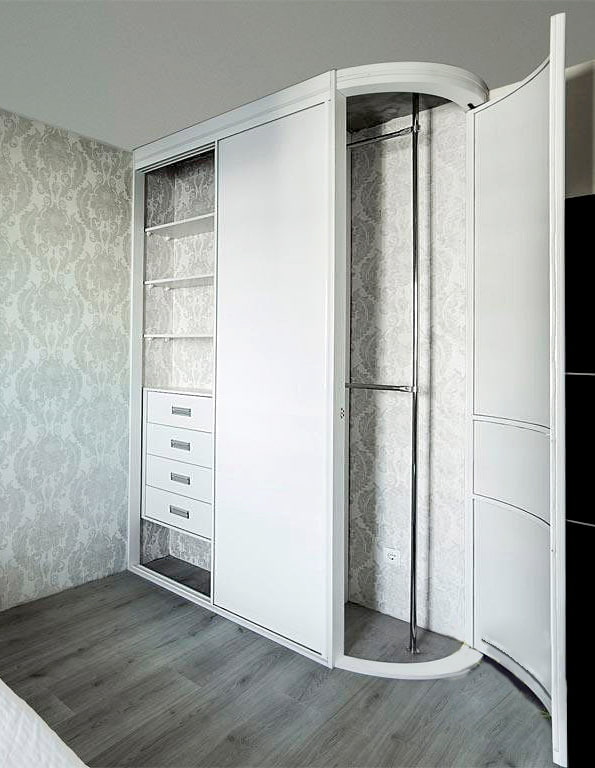
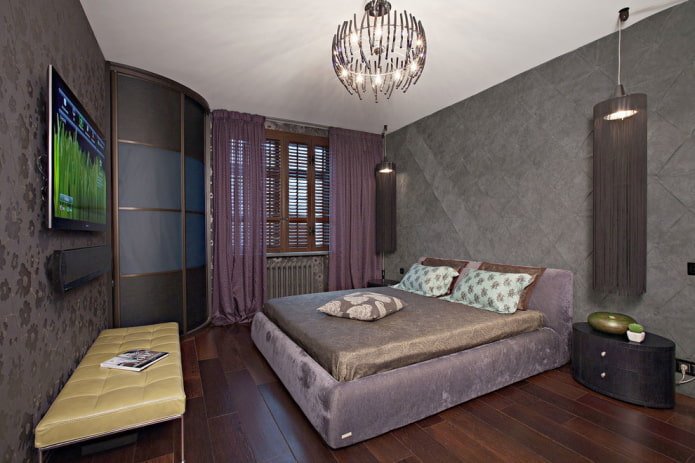
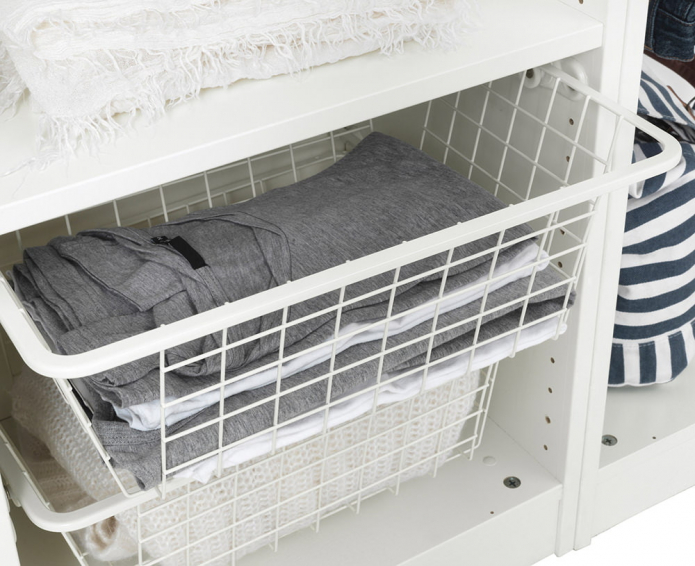
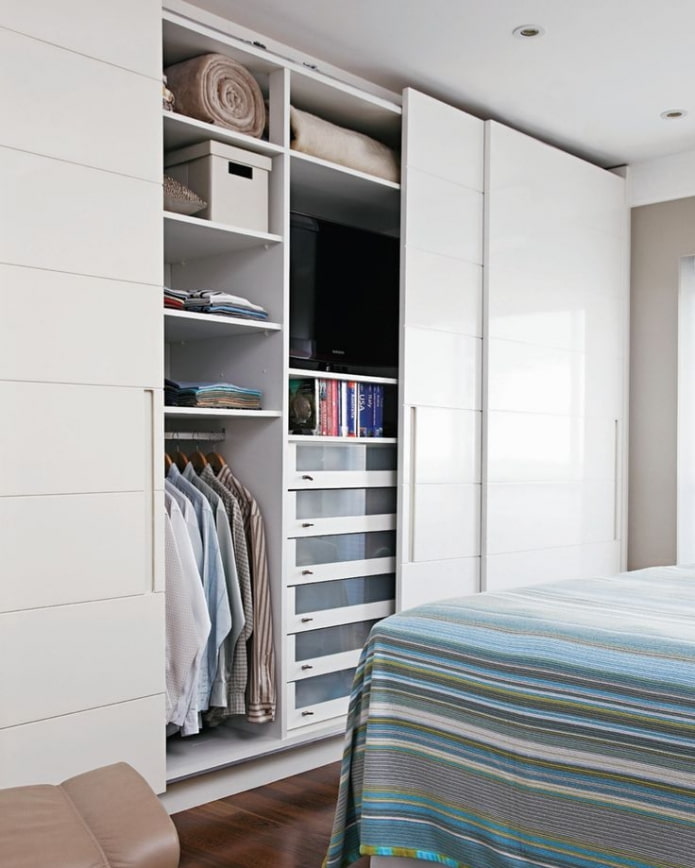
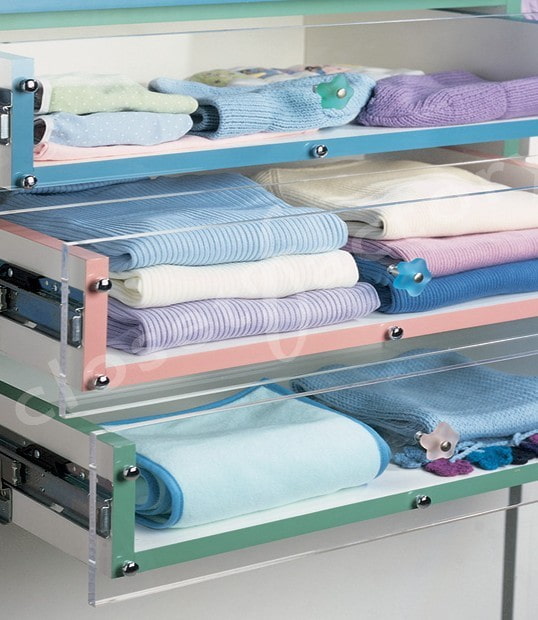
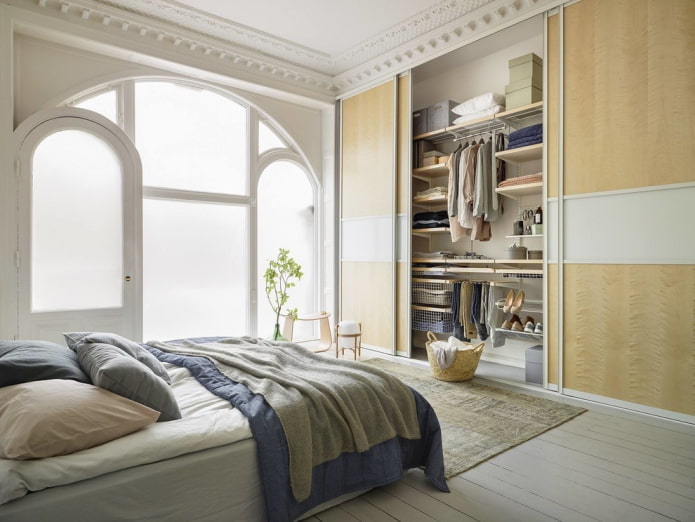
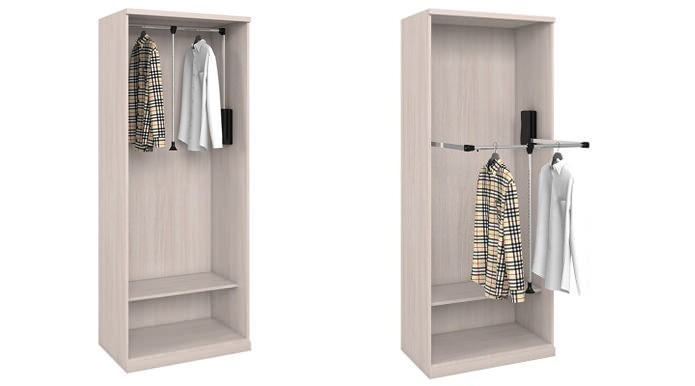
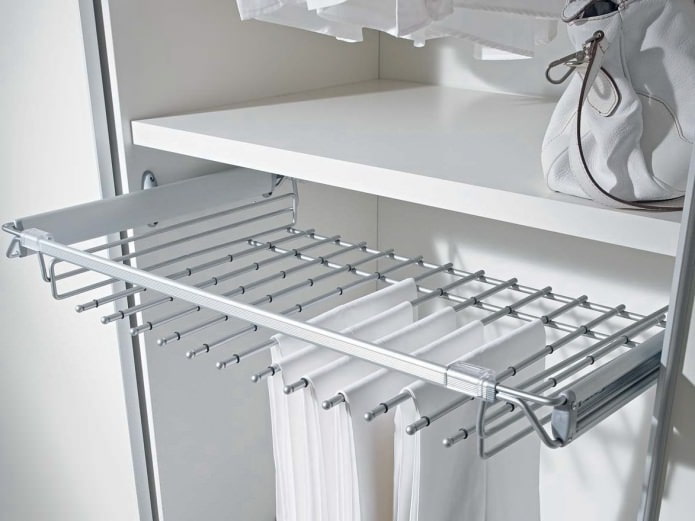
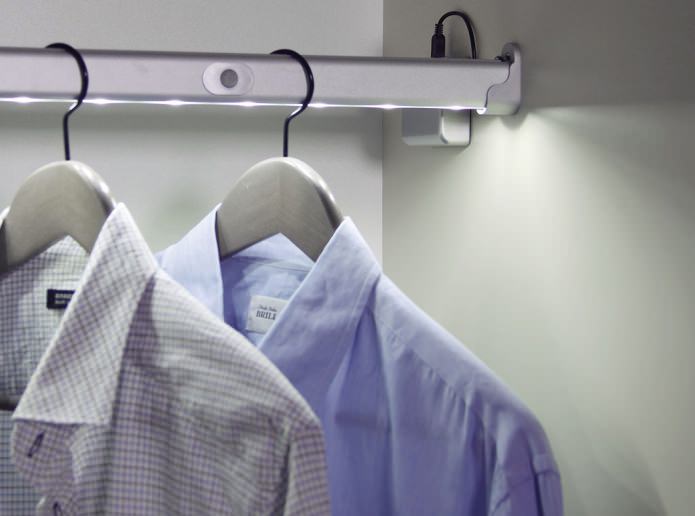
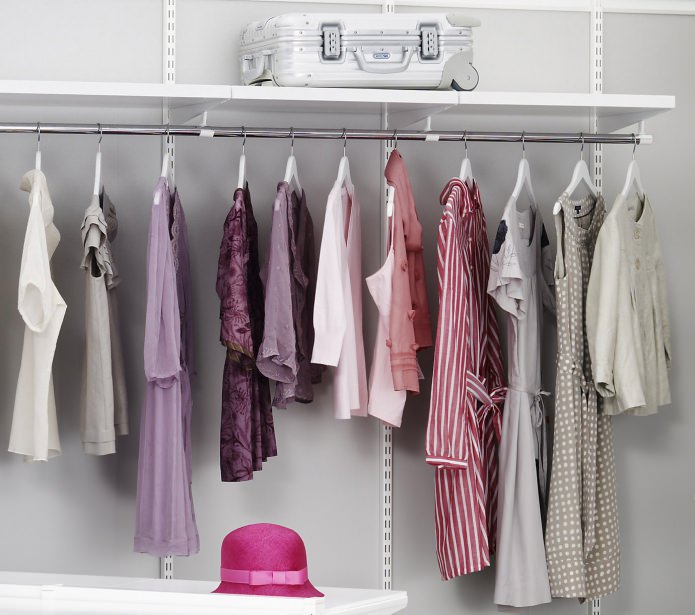
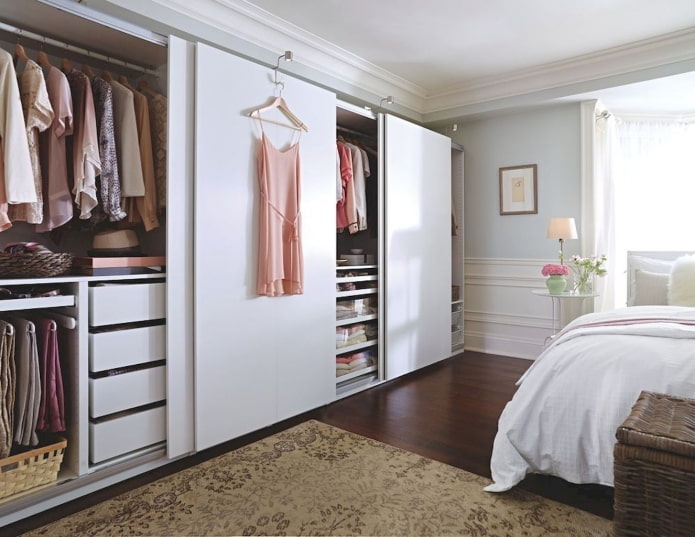
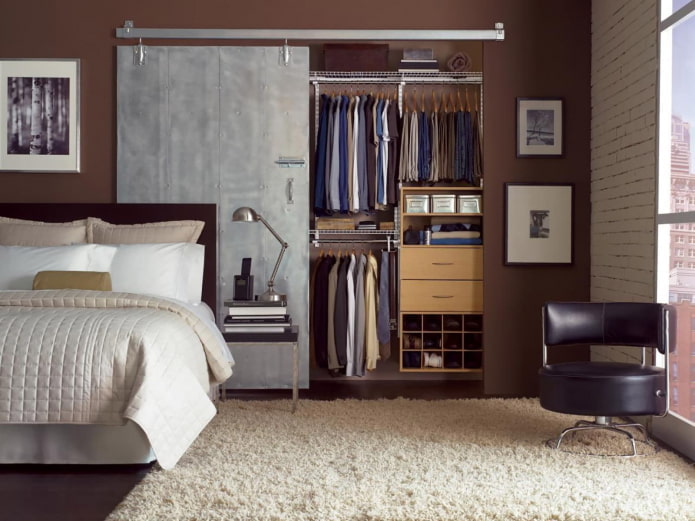
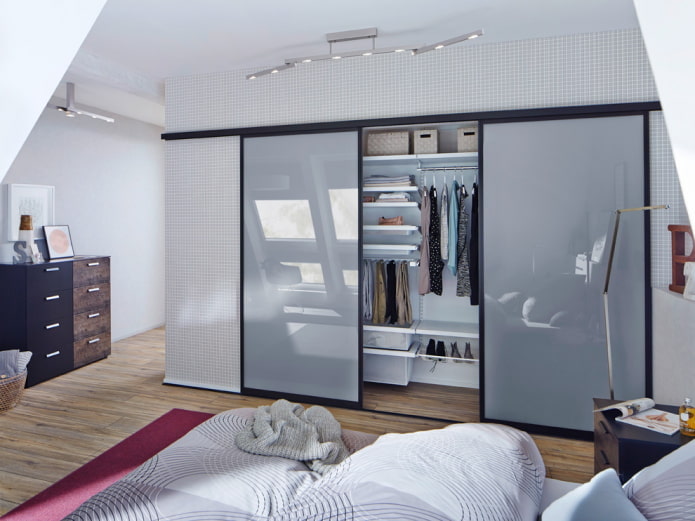
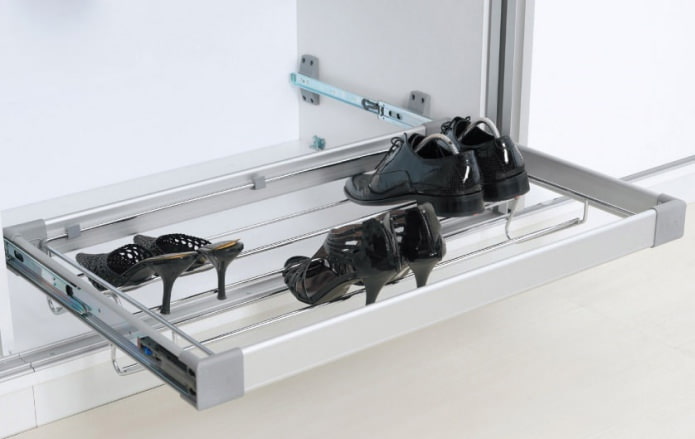
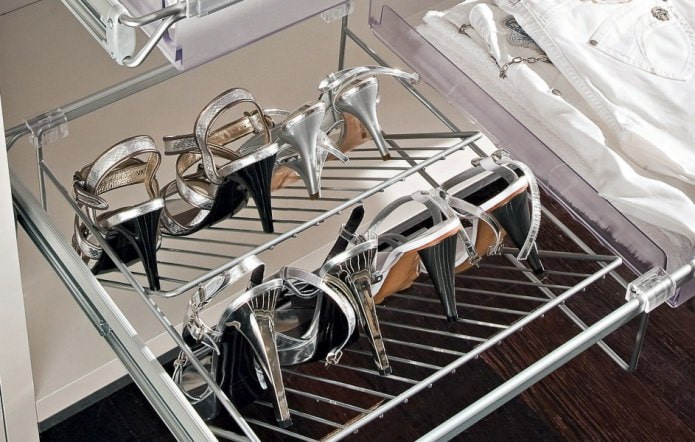
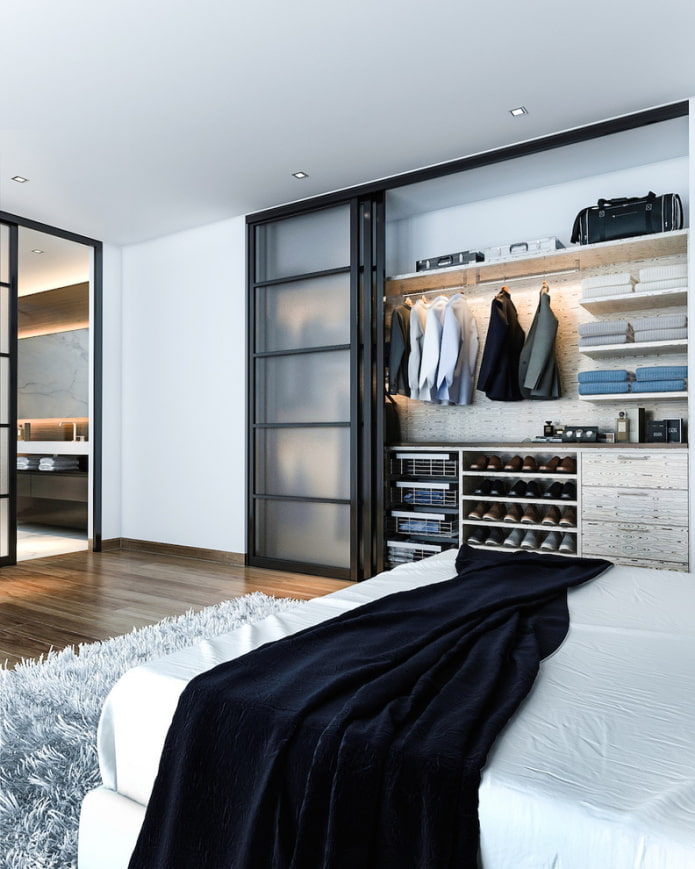
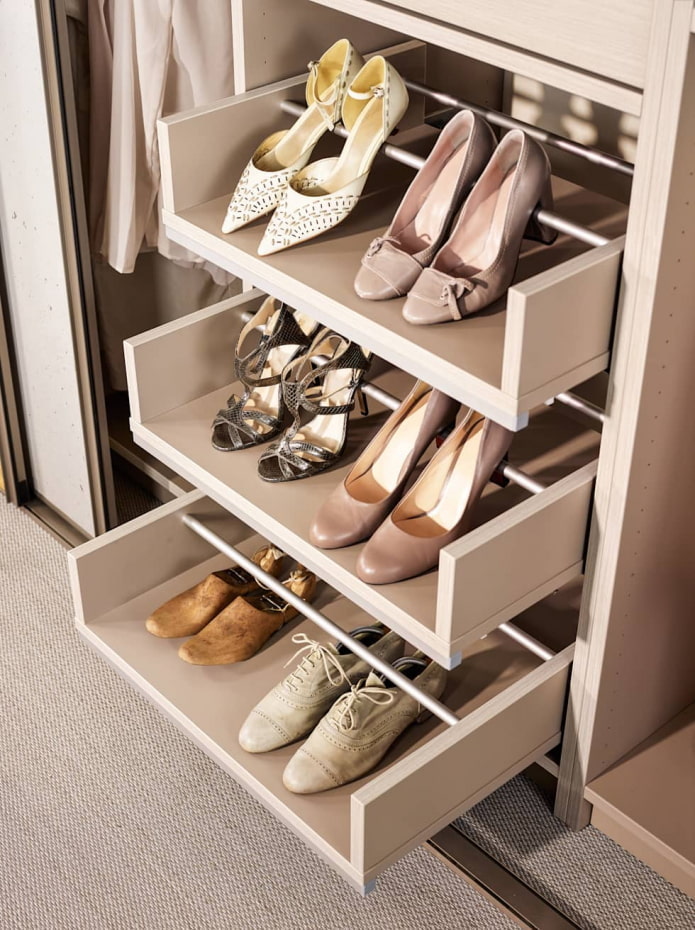
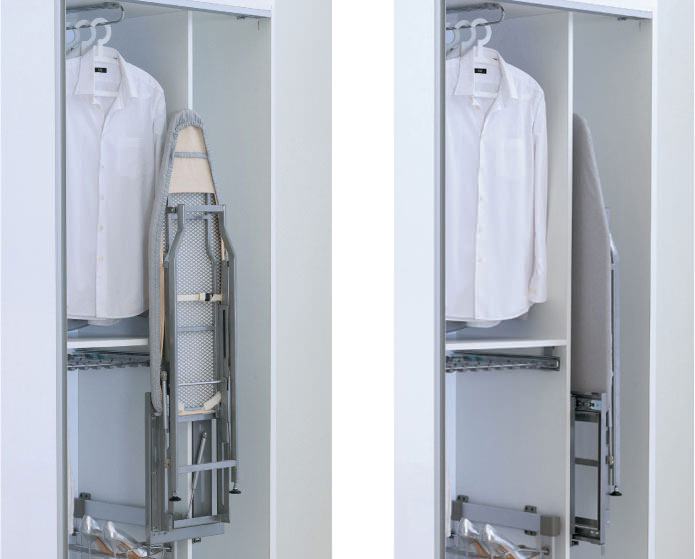
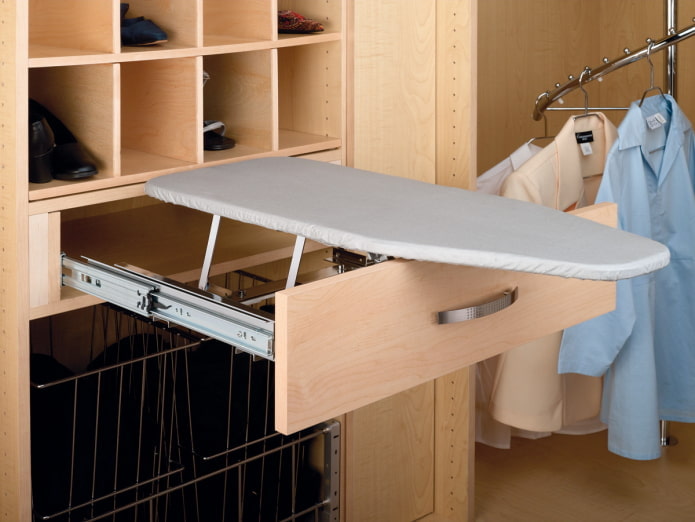
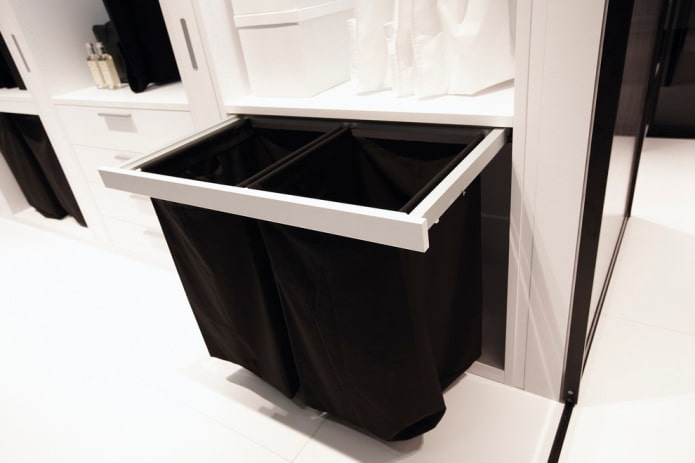
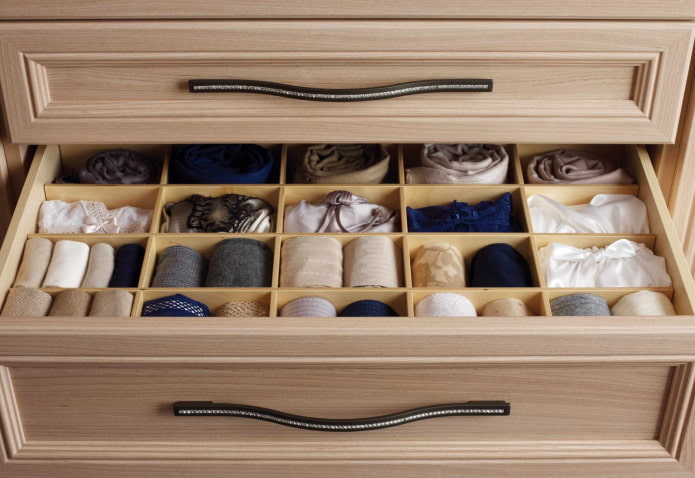
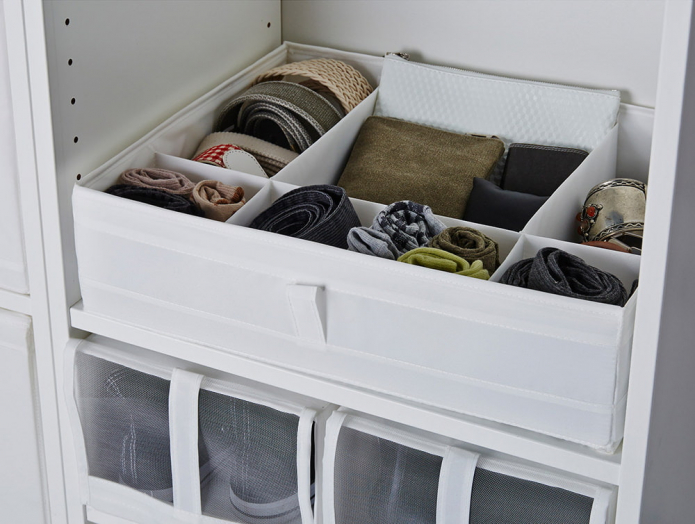
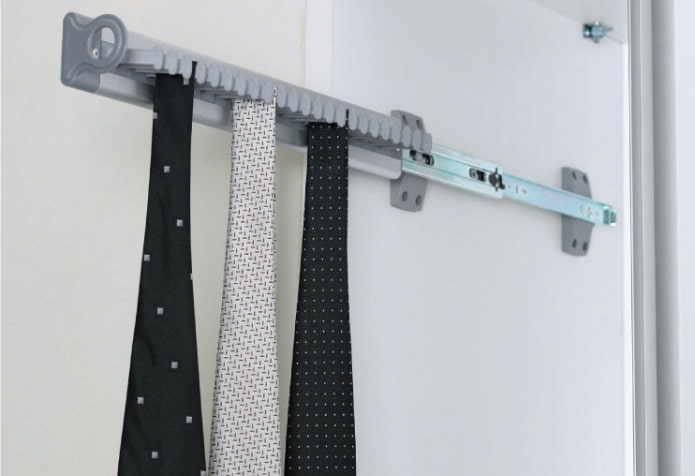
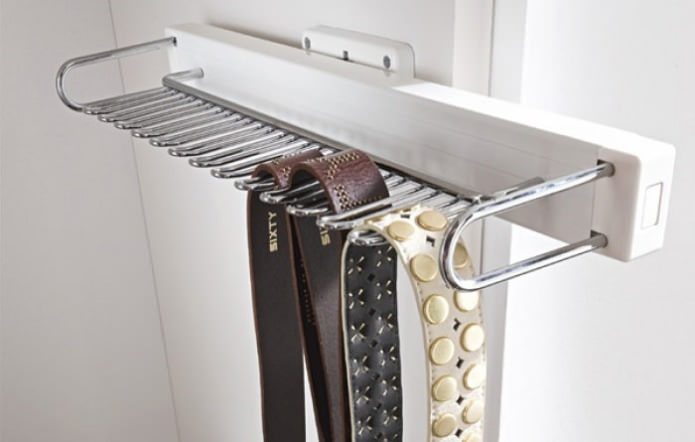
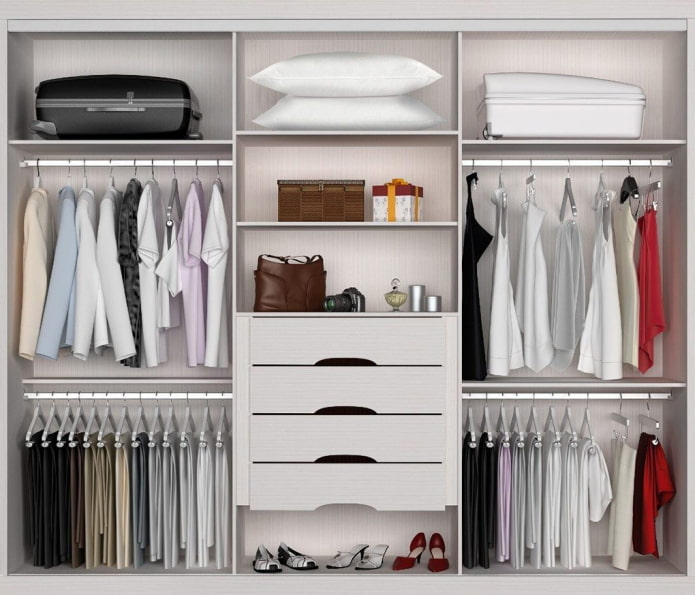
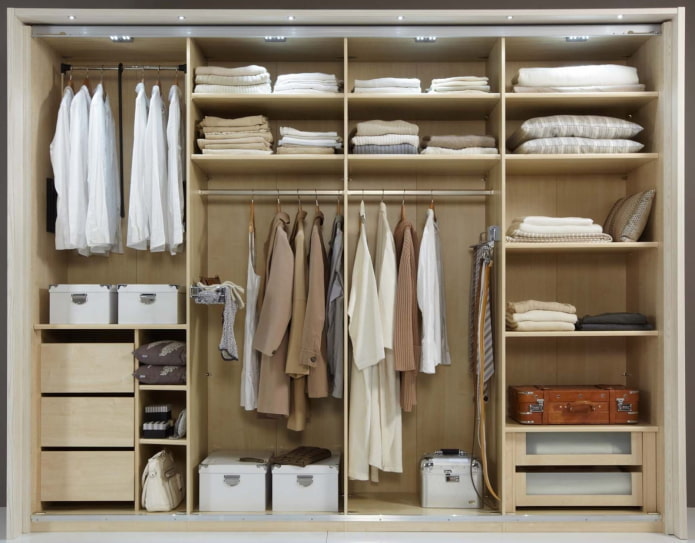
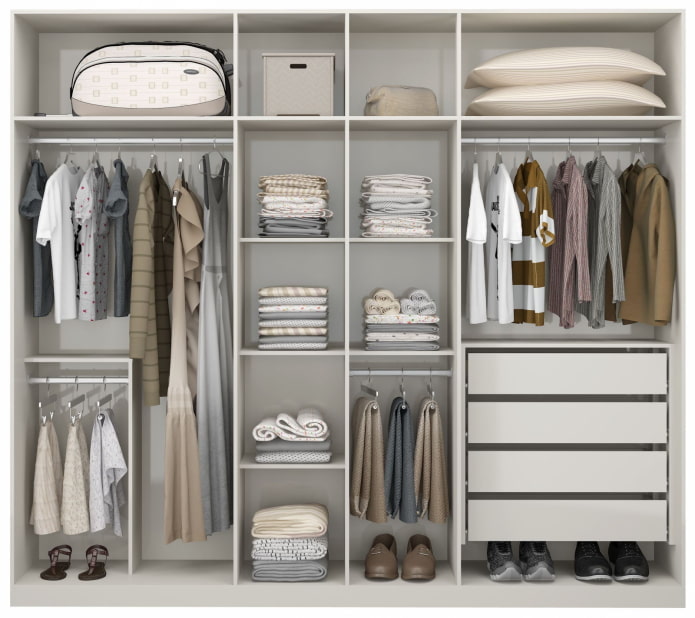
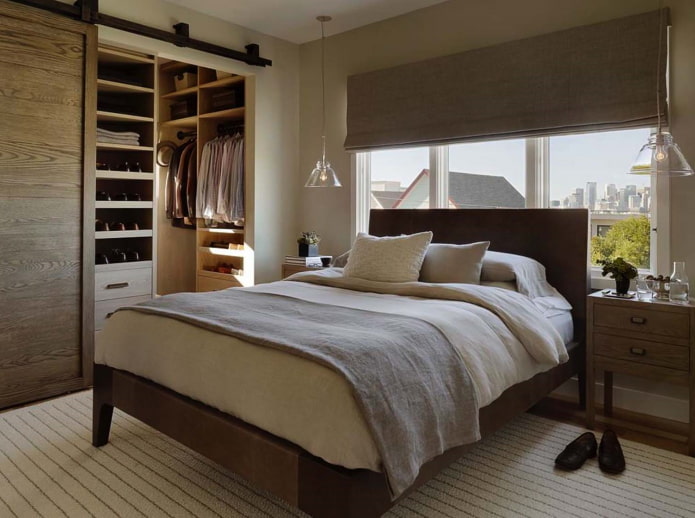
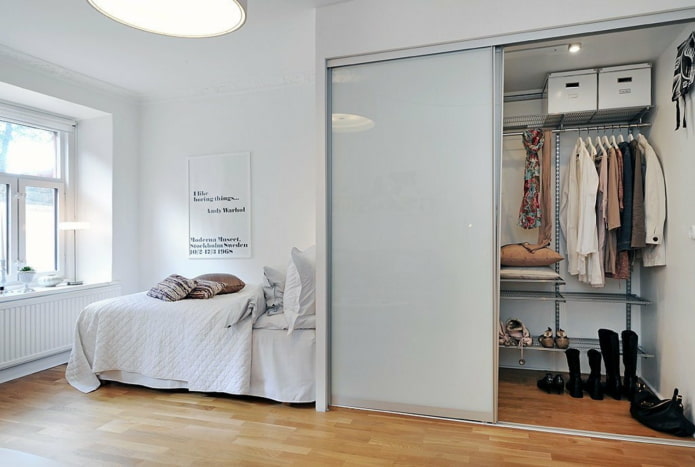
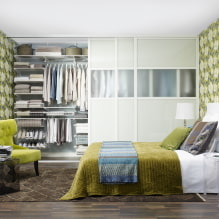
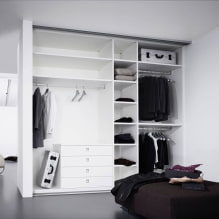
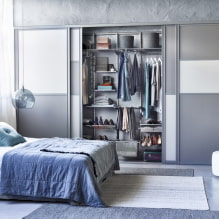
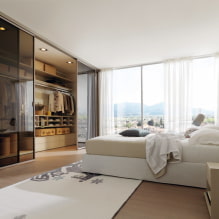
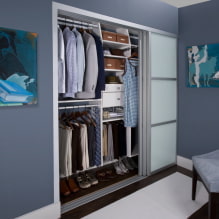
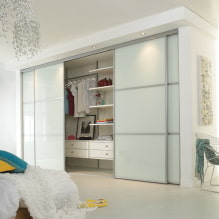
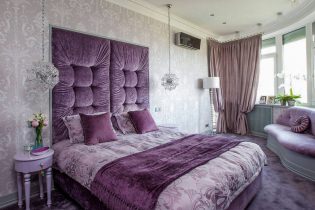 Wall design in the bedroom: choice of colors, finishes, 130 photos in the interior
Wall design in the bedroom: choice of colors, finishes, 130 photos in the interior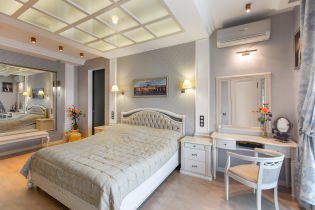 Bedroom design with gray wallpaper: 70 best photos in the interior
Bedroom design with gray wallpaper: 70 best photos in the interior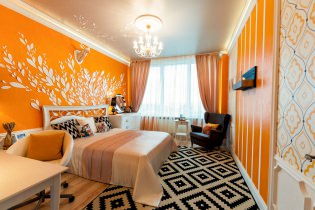 Bedroom design in orange tones: design features, combinations, photos
Bedroom design in orange tones: design features, combinations, photos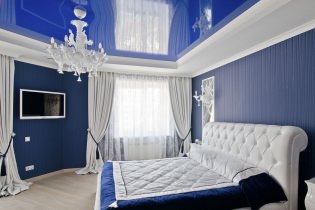 Stretch ceilings in the bedroom: 60 modern options, photo in the interior
Stretch ceilings in the bedroom: 60 modern options, photo in the interior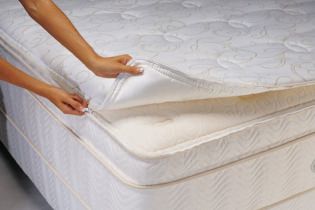 The choice of an orthopedic mattress: features, types of fillers, sizes
The choice of an orthopedic mattress: features, types of fillers, sizes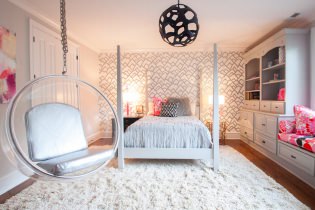 Bedroom design for a girl: photos, design features
Bedroom design for a girl: photos, design features